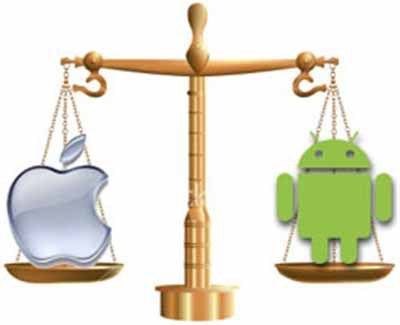Android problem: users don't want to spend money

The Android system has one billion active users. At the same time over the past year $ 5 billion was paid to developers. It sounds good, until you realize that iOS users spend 4 times more money on apps.
At the annual Google I / O conference, two key business indicators were announced for the first time: the number of active Android users per month and the fee paid by Goodle to Android developers. Apart from users from China (apparently too many of them - approx. Transl.), As well as Kindle users, the Android system uses about 1 billion people per month. At the same time over the past 12 months, application developers have been paid about $ 5 billion. Benedict Evans analyst from Andreessen Horowitz did some simple calculations:
Apple said it paid $ 7 billion to developers for 2013. Given the current trend, over the past 12 months, developers have been paid about $ 10 billion. At the same time, in March 2014, iOS had about 470 million active users. It turns out that 2 times more Android users spend 2 times less money on applications, i.e. The average revenue per user (ARPU, average revenue per user) for Android is 4 times less than for iOS.
There are several assumptions as to why such a big difference is caused:
1) The Android system prevails in low-income countries.
2) Devices on iOS, as a rule, are more expensive than devices on Android, respectively, buyers who choose a more expensive device are willing to spend more money on applications.
3) Apple offers something that users want to get and, accordingly, are willing to spend money on it.
4) Application developers prefer iOS, because they are counting on a large profit, as a result, fewer good applications are created for Android that users could buy.
The key here is the fact that Android users are initially less wasteful of money than iOS users. And it becomes a particularly significant problem for Android as this system spreads to various wearable devices and automation for smart homes.
')
At the same time, it becomes difficult not only to sell hi-end devices to Android users (top devices like the Galaxy S5 occupy a very small market share), but also to motivate developers to create competitive applications for devices that have such low attractiveness for customers.
Android positioned itself as a cheap alternative to iOS, and it seems that this is exactly what users have been waiting for and what they soon got used to. This fact may prevent the system from spreading to the most innovative and, accordingly, more expensive areas.
Source: https://habr.com/ru/post/229319/
All Articles